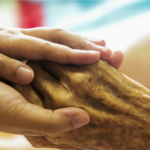
Why Pre-Planning with a Trust is Better Than Crisis-Planning
In our office, we hold workshops on both estate planning, which is considered pre-planning, and Medicaid, which is considered crisis planning. We also hold other workshops, but these are the topics I would like to focus on today. I need to educate others in these areas so that what happened to my family does not happen to yours. In these workshops, we teach that pre-planning is always better than crisis planning; however, I recently discovered that not all attorneys feel the same way.
I was recently at an elder law event in Pennsylvania with some of the most intelligent professionals in my area. I love going to these events to have conversations with others who are in practices very similar to mine. I was having a conversation with a colleague whom I respect tremendously, and whom I often emulate and would like to be similar to in the future. We had been talking for a long while, the conversation varying from weather to sports to legal-technical elder law questions. Towards the end of the conversation, my colleague asked a question that at first made me think he was joking, but I quickly realized he was not. His question to me was: Why would anybody do a trust in Pennsylvania because it is so easy to protect assets for a spouse when a loved one enters a nursing home? After realizing that it was a real question to which he wanted an answer, I was able to not only give him the answer but ultimately have him concede that it made sense and that he would start implementing it in the future.
Under current Pennsylvania law, there is a way to protect assets for a spouse living within a community, not in a nursing home. Currently, we can protect 100% of assets, whether they are solely in the name of the husband, the wife, or owned jointly. I realized that the question that he was asking was coming directly from the fact that we could just wait until it happens, and when it happens protect 100% of the assets for the remaining spouse. I agree with his statement and also with this philosophy. However, the problem is that it assumes that the community spouse for whom we protected all of the assets won’t need long-term care in the future, and also that the spouse does not care about protecting assets for his or her family.
In the past 15 years, it has become very clear to me that clients work hard for the assets that they accumulate, and they want to be able to protect that legacy for their future. I could tell numerous stories of clients that we helped to pass on a legacy to their family members; I related several of those stories to my colleague. Unfortunately, if a person waits and protects 100% of the assets for the individual who is the community spouse, and that community spouse later also needs long-term care, the best that we could do under current law is to protect 50% of the assets at that time. However, if we put their assets into the trust while they are younger, we protect 100% of all their assets, so long as they are funded in the trust for more than five years. After hearing several success stories and horrible outcomes, my colleague realized that while it is advantageous to protect 100% of the assets for the community spouse, to let it later all dissipate and be gone from the family is probably not the objective that the husband and wife are looking for. I certainly agree that protection of 100% of the assets in crisis is a great result, but only if the remaining spouse doesn’t need care in the future. By doing a trust early on we can guarantee 100% protection for the entire family. At the end of our conversation, we ultimately agreed that the clients are the ones who decide what is best for themselves. Our job is to educate and provide different ways to do what they are trying to accomplish and allow the family to decide what makes the most sense. My colleague was totally on board and has provided similar success stories since that conversation, and now realizes that the client is the one who should ultimately make the decision, not the attorney representing the client.
My thanks to my friend for an incredible conversation, and for helping me grow in all aspects of my life.
For information on our FREE workshops, click here!


